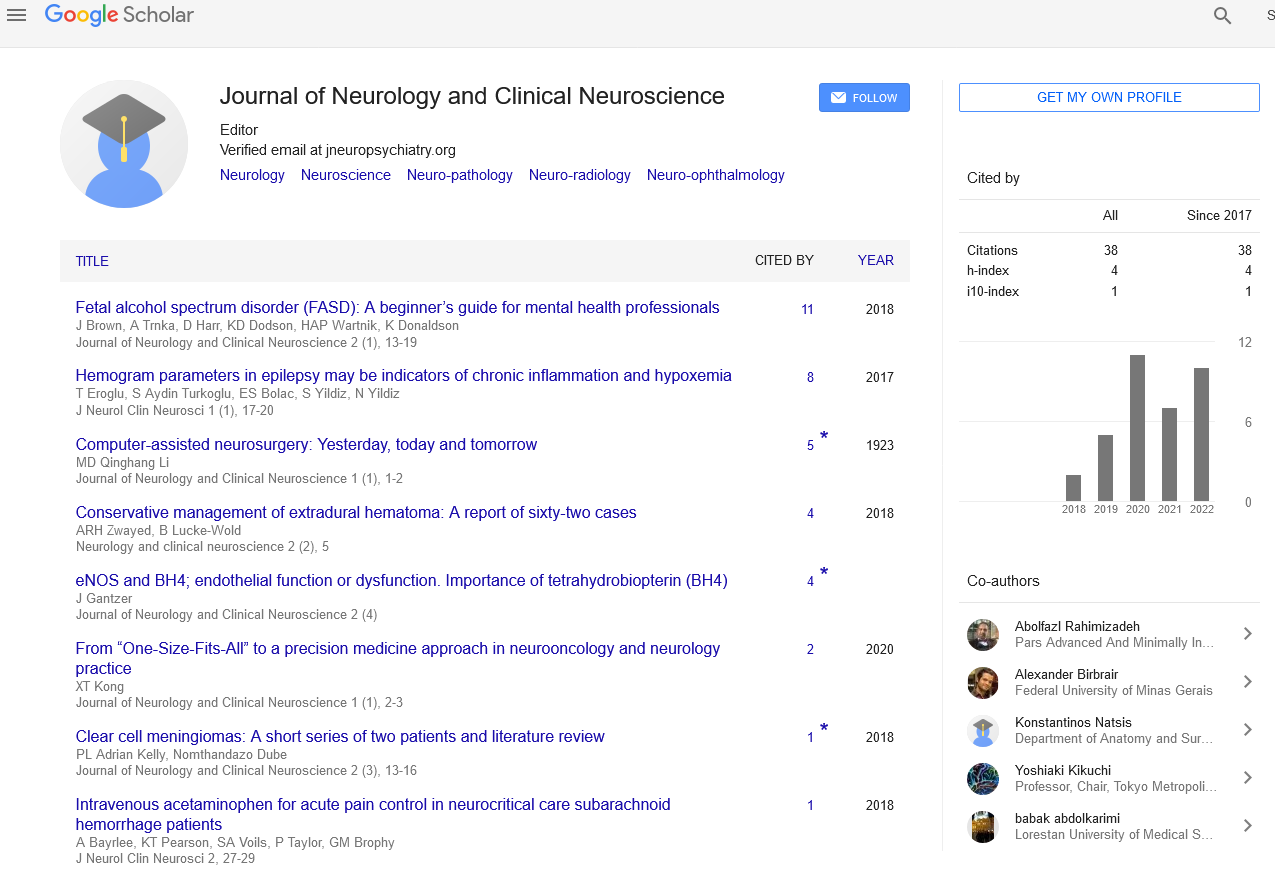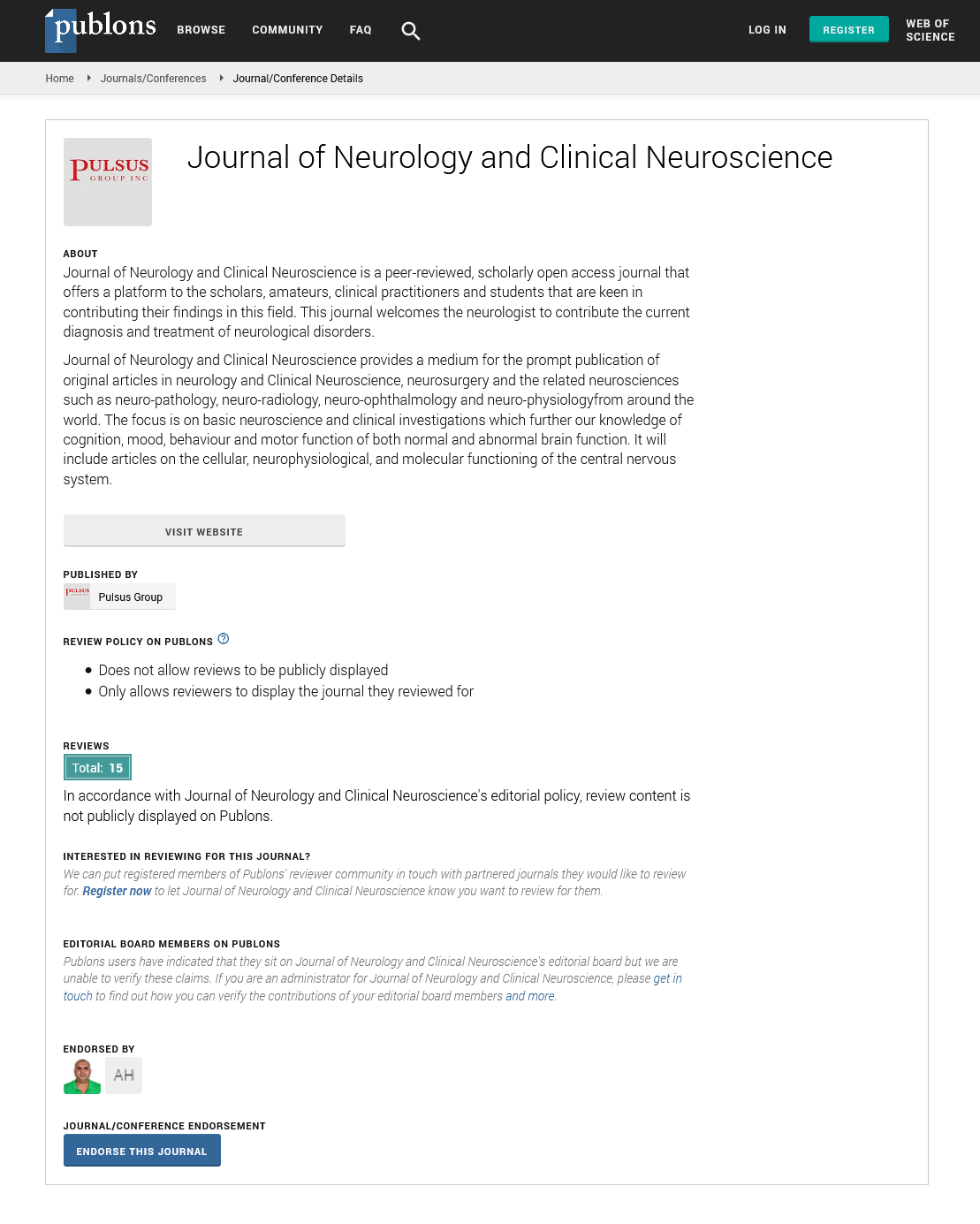the presumptive chemosignal androstadienone makes females more liberal
Received: 03-Sep-2021 Accepted Date: Sep 17, 2021; Published: 24-Sep-2021
Citation: Geotta V.The presumptive chemosignal androstadienone makes females more liberal. J Neurol Clin Neurosci 2021;5(5):3.
This open-access article is distributed under the terms of the Creative Commons Attribution Non-Commercial License (CC BY-NC) (http://creativecommons.org/licenses/by-nc/4.0/), which permits reuse, distribution and reproduction of the article, provided that the original work is properly cited and the reuse is restricted to noncommercial purposes. For commercial reuse, contact reprints@pulsus.com
Description
Scholars have suggested that information conveyed through the olfactory channel have a strong influence on people’s behavior and this ability can be related to the anatomical overlap between the olfactory system and the limbic brain networks which regulates responses and behaviors based on emotions [1]. It has been shown that putative chemo signals (like 4, 16- androstadien-3-one, a testosterone-derived molecule) are similarly capable of eliciting emotional changes, for example Androstadienone can improve positive mood [2]. Androstadienone is considered a sex chemo signal and it has gender specific effects on behaviors, for example it increases women’s attraction to men in a speed dating context [3].
Starting from these findings, another step in the direction of understanding the behavioral effects of Androstadienone is to investigate its influence on economic decisions. In most economic contexts odors are simply incidental pieces of information, i.e. they have little relevance to the decision problem at hand. However, studies have already shown that they can affect people’s decisions, for example experimental findings indicate that after being exposed to Androstadienone male participants behaved more cooperatively in a series of economic games [4]. This interesting result begets new questions: how the mood changes induced by Androstadienone can affect economic decisions? In addition, is there a difference between the economic decisions of males and females when they are exposed to Androstadienone?
The study by Perrotta, Graffeo, Bonini and Gottfried (2016) [5] addresses these questions with an experiment where a group of 37 participants (19 women) played 24 rounds of Dictator Game, an economic game where the players decide how to split a sum of money between themselves and another player. The Dictator Game has often been used to measure altruistic behaviors in a social context [6]. The participants were paid according to their decisions, following a scheme that gave them an incentive to behave selfishly, while the literate suggests that Androstadienone can elicit cooperative choices. Some actions were taken in order to minimize the influence of uncontrolled factors, i.e. participants who could perceive the presence of Androstadienone were excluded and the participation of female players was limited to their ovulatory period (given that cyclic variations in hormone levels can influence how olfactory information is processed). A double blind, within-subject design was used, so in different rounds the same participants were exposed either to limonene (a pleasant odor) or to a mix of limonene and androstadienone. The results indicate that, in the presence of androstadienone, the participants gave more money to the other players and this effect is stronger for the female participants. In addition, this behavior is not directly influenced by the mood change generated by Androstadienone.
Conclusion
This is one of the many examples of how odors influence how people interact in social contexts and this capacity can be applied in various situations including, for example, helping people suffering from Autism Spectrum Disorders in assigning meaning to social events. At the same time, the more generous behaviors of the participants in the Dictator Game, in contrast with their economic self-interest, says something important for the theory of economic behavior. While the Homo economicus model assumes that people are selfish (i.e. they care only about their own economic wellbeing), several studies show that various factor, from the social context to peripheral cues like odors, can induce people to care also for others. In conclusion, the recent literature indicates that a multidisciplinary approach which encompasses different perception modalities and the specific characteristics of the decision contexts can be extremely fruitful in explaining complex facets of the decision processes.
REFERENCES
- Gottfried JA. Central mechanisms of odour object perception. Nat Rev Neurosci. 2010; 11: 628-641.
- Bensafi M, Tsutsui T, Khan R, et al. Sniffing a human sex-steroid derived compound affects mood and autonomic arousal in a dose-dependent manner. Psycho Neuro. 2004; 29: 1290-1299.
- Saxton TK, Lyndon A, Little AC, et al. Evidence that androstadienone, a putative human chemosignal, modulates women’s attributions of men’s attractiveness. Horm Behav. 2008; 54 (5): 597-601.
- Huoviala P, Rantala MJ. A putative human pheromone, androstadienone, increases cooperation between men. J Plus One. 2013; 8 (5): e62499.
- Perrotta, V, GraffeoM, Bonini N, et al. The putative chemosignal androstadienone makes women more generous. J Neurosci Psychol. Econ. 2016; 9: 89-99.
- Fehr E, Gachter S. Fairness and retaliation: The economics of reciprocity. J Econ Perspect. 2000;14 (3): 159-181.





